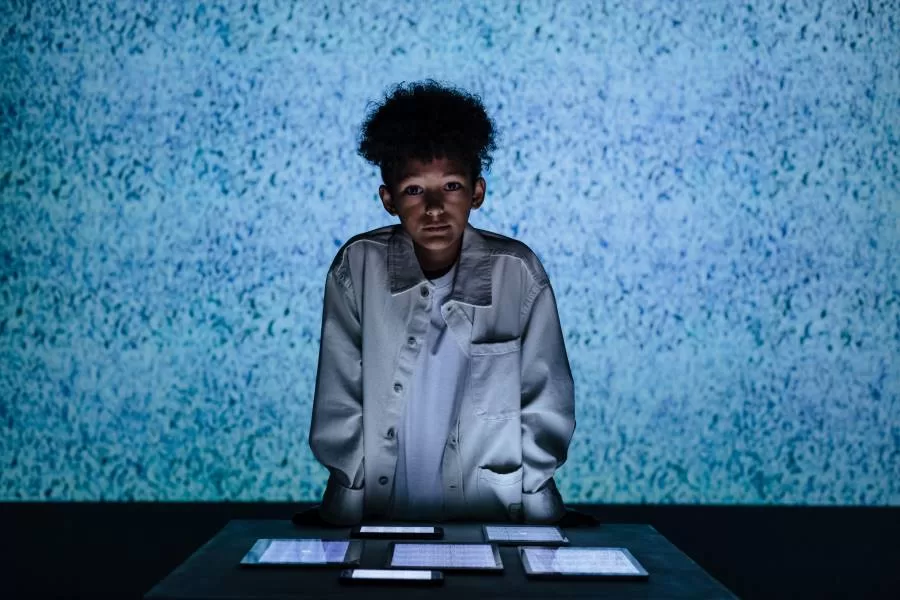Instant gratification is the desire or urge for immediate reward or pleasure, without effort or delay. It implies ignoring long-term consequences, creating a craving which may rival in intensity with drug addiction in some cases.
Online shopping, fast food, social media, search engine results are all build around immediate gratification. While we may be capable to understand the principles on which they rely and that they are all built to increase consumption and maximize sales, we can hardly master the urge they trigger. Online games relying on microtransactions, with endless levels, are built around the same principles of false achievement. Everything has to be easier, faster, at the touch of a finger or ideally a thought away from manifesting. Dating apps bring the illusion of relationships one swipe away.
Our personality in its raw form is undisciplined. Ads that include buzz words such as: “easy“, “immediate“, “do nothing” attract the human brain like a magnet. And if it has (literally) sugar on top, your brain is already drooling.
The mechanism of instant gratification
It is not so much about the principle of pleasure (we’ll get back to that), but rather about the cycle it controls:
unpleasant task to do (which needs effort, focus, patience) – > trigger -> seek a task that provides instant gratification -> get dopamine
Example: you have to study (feels unpleasant) -> get triggered to seek pleasure -> checkout Netflix or TikTok instead -> each episode or TikTok seen gives the false sense of achievement which releases dopamine
The effects of instant gratification
1. The main long-term effect is depression. That is because all these fake rewards are not building anything positive. Fast food leads to obesity and damaged health. Instant shopping creates debt. Social media creates fake personas and the illusion of having connections. Dating apps can get you laid, but not happy in love.
2. Lack of dopamine creates anxiety. Generalized anxiety is an escalation of a pre-existing depression. Emotional distress weakens self-control.
3. It negatively affects focus. That leads to a decreased attention span, impatience which turns into procrastination and failed goals.
4. On the long run it will affect your love life. Less patience in waiting for things to grow, to develop affects relationships. You can’t download relationships and you can’t buy them from a shop. There’s nothing “instant” about them. They require a serious time investment along with active effort in order to work. Simple compatibility isn’t enough.
5. Instant gratification leads to impulsive decisions which increase the risk of substance abuse and obesity. Long term consequences are disregarded.
6. It makes you dumb. At the end of the day what do you expect to learn without putting in effort and just expecting rewards? Unfortunately, instant gratification raises attrition among young people. While they don’t want to spend years in the same company, they also refuse to accept the natural curve of learning and the time it takes to make progress.
A touch of science
Freud considered that our brain seeks pleasure and wants to avoid pain (The Pleasure Principle). Come to think about it, the technology at hand 100 years ago was making it almost impossible to get instant gratification.
The Marshmallow Experiment is to date considered an excellent predictor of future success for children (check out the link for video of the experiment and explanation).
Also, when dealing with kids, overprotection may prevent negative effects and learning the negative consequences of certain actions. Without this awareness it’s much easier to fall in the trap of instant gratification.
Delayed gratification sets a balance between waiting time and an increased reward.
How do you fight instant gratification?
- Get clarity on your goals. Any long term effort can be maintained only if you know what drives you to do it (and be honest about it).
- Train your focus. Luckily, we are not born with focus. It’s a trained skill. That means anyone can achieve focus. We’ve explained how focus works here. Break tasks into manageable tasks and increase their duration.
- Get on a digital “diet”. Unplug. Disconnect from technology.
- Be present. Re-learn to be present. Present in the conversation, in the activity you’re doing.
- Meditate in order to learn how to calm down your wandering thoughts.
- Reward yourself for being able to focus. However you see fit. Hopefully not through instant gratification.
- Focus on real life. Level 100 in a game doesn’t mean anything in real life. A fan badge on social media is a reward for addiction. One thousand followers may not mean a single friend. Watching a whole movie season in one go brings only dark circles around your eyes. Chatting 5 hours with someone is less meaningful and effective than a half an hour face to face interaction.
PS: turn off your phone data when you go to sleep. If it’s that urgent, you’ll get a call, not a whatsapp text. You’re not missing out on anything. Do you really need that new phone now or can it wait for Black Friday to have a consistent saving?
If you have enjoyed reading this or know someone who needs to hear all this, please go ahead and share it with your friends. Thank you!

